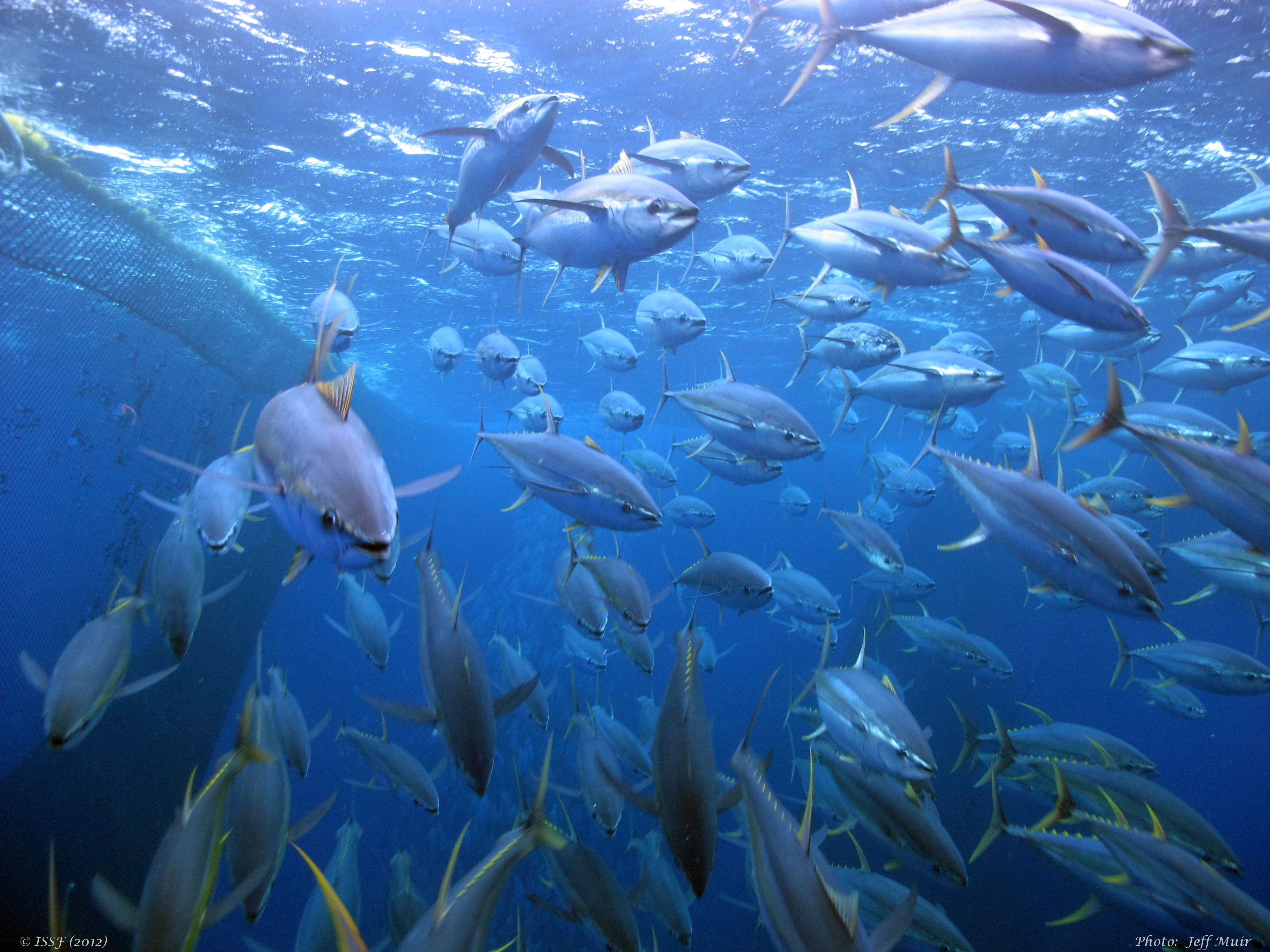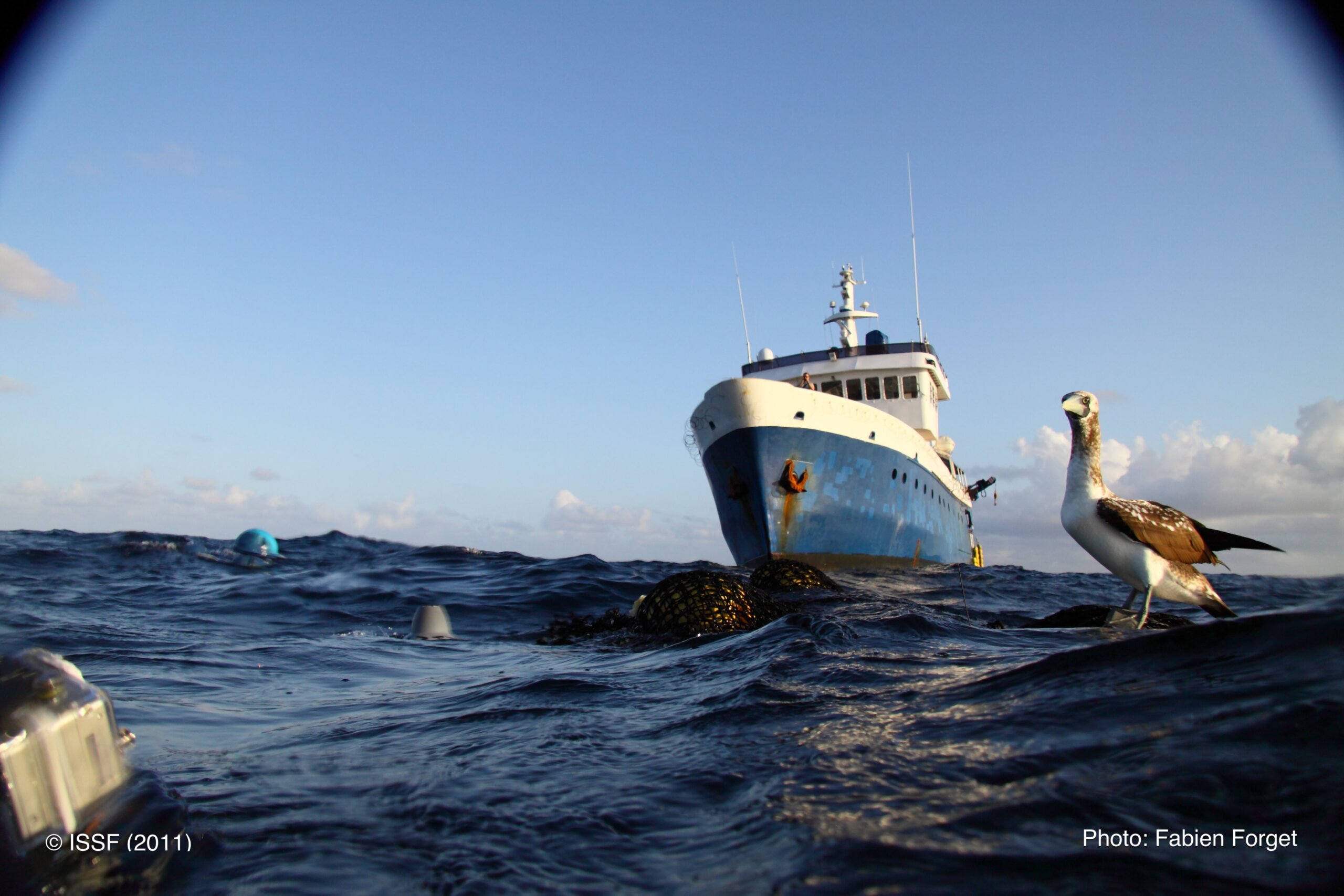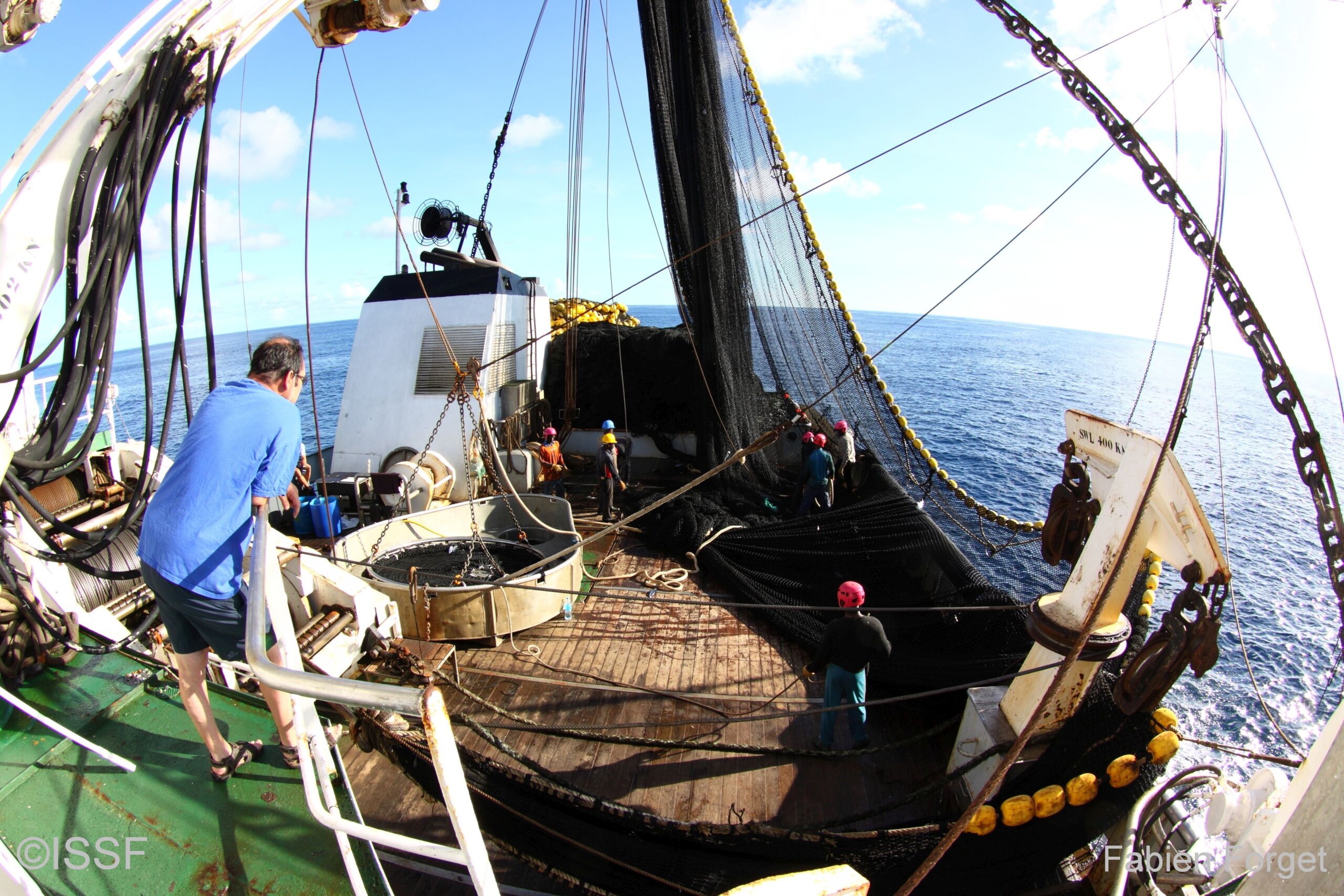
IOTC Takes Decisive Action on FADs But Fails to Adopt Effective Measures to Rebuild Yellowfin Stocks
The IOTC concluded its 23rd Annual Meeting in India last week, and the results are decidedly mixed. ISSF went into the meeting with urgent calls for IOTC to take immediate steps to protect Indian Ocean yellowfin. We were also advocating for IOTC to:
- Adopt species-specific harvest strategies as soon as possible, particularly for yellowfin tuna, and conduct a review of the limit reference points (LRPs) in Resolution 15/10 to allow for the adoption of harvest control rules by 2020
- Address data gaps in artisanal fisheries, especially for gillnets
- Strengthen monitoring, control and surveillance (MCS) measures, such as vessel monitoring systems (VMS) and the regional observer scheme (ROS)
- Strengthen fish aggregating device (FAD) management, including of supply and tender vessels; ensure full implementation of non-entangling FADs; and support testing of biodegradable FADs
- Require 100% observer coverage on large-scale purse seine vessels; adopt the ROS Standards for national programs; and develop electronic monitoring/electronic reporting (EM/ER) standards so that EM can be used to ultimately achieve 100% observer coverage in purse seine and longline fisheries
- Continue to strengthen the IOTC compliance assessment process
The IOTC made progress on some of these asks, but unfortunately not on our highest-priority item, which was the adoption of an effective rebuilding plan for yellowfin tuna that gives full effect to the recommendations from IOTC’s Scientific Committee.
Positive Outcomes for FAD Management and Non-Entangling & Biodegradable FADs
ISSF is pleased that the IOTC took decisive action on FADs. The IOTC agreed to the mandatory use of non-entangling FADs from 1 January 2020 and use of biodegradable FADs from 1 January 2022. In addition, the Commission further reduced the limit on active FADs to 300 (down from 350) and the number acquired annually per purse seiner to 500 (down from 700). The mandatory use of non-entangling and biodegradable FADs will reduce entanglement of sensitive species such as sharks, minimize FAD strandings on sensitive marine habitats, and reduce plastic pollution.
These crucial steps forward on FAD management were coupled with clarification on FAD data reporting (e.g., clear articulation of the aggregation and format requirements) and the development of an intersessional program of work for FAD marking, tracking and retrieval. This intersessional work will enable in-depth discussions on the reporting of lost FADs, arrangements to alert coastal States of derelict FADs at risk of beaching in near real-time, how and who recovers the DFADs, and how the recovery costs are collected and shared.
Yellowfin Rebuilding: Some Steps Forward, But Largely Missing the Mark
ISSF urged IOTC to adopt an effective rebuilding plan for yellowfin tuna this year that gives full effect to the scientific advice of its own Science Committee and achieves a healthy spawning biomass for the species by 2024 with at least 50% probability.
Unfortunately, the management arrangements for yellowfin that IOTC adopted last week once again do not achieve the catch reductions recommended by the Scientific Committee. This is a concerning and disappointing outcome that puts the Indian Ocean yellowfin stock at further risk. ISSF urges all Parties to work together between now and the next meeting as a matter of priority to bridge gaps and find solutions that will produce an effective rebuilding strategy that will ensure the long-term sustainability of this important resource.
While the adopted measure does not meet the scientific advice, we note that it does include some positive aspects. One of these are the provisions requiring that Parties whose fleets exceed their catch limits will have that over-catch deducted from their annual limits in future years. There is a clear need for such a provision since, in 2018, the IOTC Scientific Committee reported that catches of yellowfin tuna exceeded by 3% the management measures previously agreed by the Commission. The new measure also includes catch limits for Parties that were previously exempted from having limits.
Despite the lack of progress on the yellowfin tuna rebuilding measure, ISSF is pleased that the Commission considered a working draft of a yellowfin tuna Management Procedure (Harvest Strategy) and committed to continue funding the management strategy evaluation work. We applaud this initial step and look forward to seeing its further development in the coming years.
Success for Manta and Devil Rays (aka Mobulids)
IOTC has joined IATTC in adopting a prohibition on retention of mobulid rays along with safe release guidelines. As long-lived species, these rays are more susceptible to fishing pressure, so it is gratifying to see IOTC joining other RFMOs in taking steps to reduce the impact of fishing on these non-target and associated and dependent species.
Missed Opportunities: Strengthened MCS Tools and Compliance
ISSF is disappointed that there was again limited concrete progress on developing or strengthening essential monitoring, control and surveillance (MCS) tools for the IOTC, including a regional VMS and observer program. Therefore, it is critical that the VMS Working Group make swift progress in considering the necessary policy related improvements for this key MCS tool.
Likewise, continued intersessional work on the regional observer program and electronic monitoring standards is essential to enabling an increase in observer coverage, particularly in those sectors that remain non-compliant with the existing — and wholly inadequate — 5% observer coverage requirement. We stand ready to work with all Parties to accelerate progress on these issues during an intersessional period in accordance with the Commission’s work plan.
Finally, the reported level of compliance by Parties, as presented in the IOTC Compliance Committee, is quite low for several important conservation measures, such as mandatory data reporting, FAD management plans, and active vessels. Strengthening the IOTC compliance assessment process is an essential body of work. In particular, ISSF remains concerned that the compliance process lacks a scheme of responses to non-compliance and a full assessment of all IOTC’s obligations and measures. We will continue to work with members of the Commission to further refine the process in line with best practices, and taking into account the lessons learned in other RFMOs.
While there was some progress in the IOTC this year, there were big missed opportunities to ensure the long-term sustainable management of the Indian Ocean’s valuable tuna fisheries and their associated ecosystems. ISSF remains focused on taking steps forward, not backward, and will be working diligently in the weeks and months ahead with all stakeholders towards this goal.


